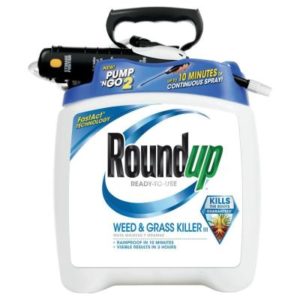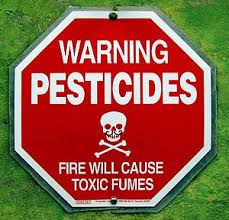 Once again Europe is better at protecting people than the US (Surprise, surprise! Not...) This time a study compared pesticide use on golf courses in different regions of the US and 3 European countries (UK, Denmark, Norway). It found that the number of pesticide products and pesticide use is significantly higher in the US than in Europe - the risk to people from pesticides is 15 times higher in the US than the European countries.
Once again Europe is better at protecting people than the US (Surprise, surprise! Not...) This time a study compared pesticide use on golf courses in different regions of the US and 3 European countries (UK, Denmark, Norway). It found that the number of pesticide products and pesticide use is significantly higher in the US than in Europe - the risk to people from pesticides is 15 times higher in the US than the European countries.
This is because Europe is actively trying to reduce the amount of pesticides used, while the US is not. The European Union has banned a number of the most dangerous pesticides, while the US has not. Fewer pesticides (20 or fewer) are allowed to be used on golf courses in the 3 European countries, while many more (200 to 250) are allowed in the US.
Important: Pesticides drift onto neighboring properties when applied, they contaminate water and soil, people breathe them in, get them on their skin (and so absorb them). They have harmful effects to our health and environment, even at low doses.
Excerpts from Beyond Pesticides: Pesticide Dangers at Golf Courses Much Higher in the U.S. than Europe, Study Finds
Pesticide use on golf courses in the United States poses significantly more risk to human health than those in Europe, according to a study published this month in Science of the Total Environment. The findings highlight yet another area of land management where the U.S. is dangerously behind the European Union, as these countries are set to ban pesticides in parks, playgrounds, and playing fields, and have established a 50% reduction goal for agriculture by 2030.
Meanwhile U.S. agencies continue to perpetuate widespread toxic pesticide use, with U.S. Department of Agriculture Secretary Tom Vilsack even working to counter the EU’s reduction goals through a separate, “market-oriented” initiative alongside pesticide industry-friendly countries like UAE and Brazil. ...continue reading "European Governments Protect Residents By Allowing Fewer Pesticides On Golf Courses Than in the US"

 For years there has been much concern over chemicals that act as endocrine disruptors (hormone disruptors) in the personal products that we use on a daily basis. One big concern is whether these chemicals, such as parabens and phthalates, are causing breast cancer (as well as other harmful health effects). Because whatever you use on your skin, will get into you.
For years there has been much concern over chemicals that act as endocrine disruptors (hormone disruptors) in the personal products that we use on a daily basis. One big concern is whether these chemicals, such as parabens and phthalates, are causing breast cancer (as well as other harmful health effects). Because whatever you use on your skin, will get into you. Another important nutrient for brain health is magnesium. A
Another important nutrient for brain health is magnesium. A  Want to improve your odds of not getting a chronic disease, such as heart disease or diabetes? A
Want to improve your odds of not getting a chronic disease, such as heart disease or diabetes? A  Another
Another 
 Most people don't realize how quickly many pesticide levels decrease in our bodies after switching to eating organic foods. Studies find significantly lower levels in a few weeks for many
Most people don't realize how quickly many pesticide levels decrease in our bodies after switching to eating organic foods. Studies find significantly lower levels in a few weeks for many  Millions of pounds of pesticides are used each year in the US for all sorts of reasons - crops, lawns, inside homes, aerial spraying, etc. But what many people don't realize is that the pesticides get into us and they have harmful effects on us. Pesticides can be absorbed through the skin, ingested (from food and water), or inhaled.
Millions of pounds of pesticides are used each year in the US for all sorts of reasons - crops, lawns, inside homes, aerial spraying, etc. But what many people don't realize is that the pesticides get into us and they have harmful effects on us. Pesticides can be absorbed through the skin, ingested (from food and water), or inhaled. Many people take laxatives to deal with constipation, but it may not be a good idea to take them long-term or frequently. New
Many people take laxatives to deal with constipation, but it may not be a good idea to take them long-term or frequently. New